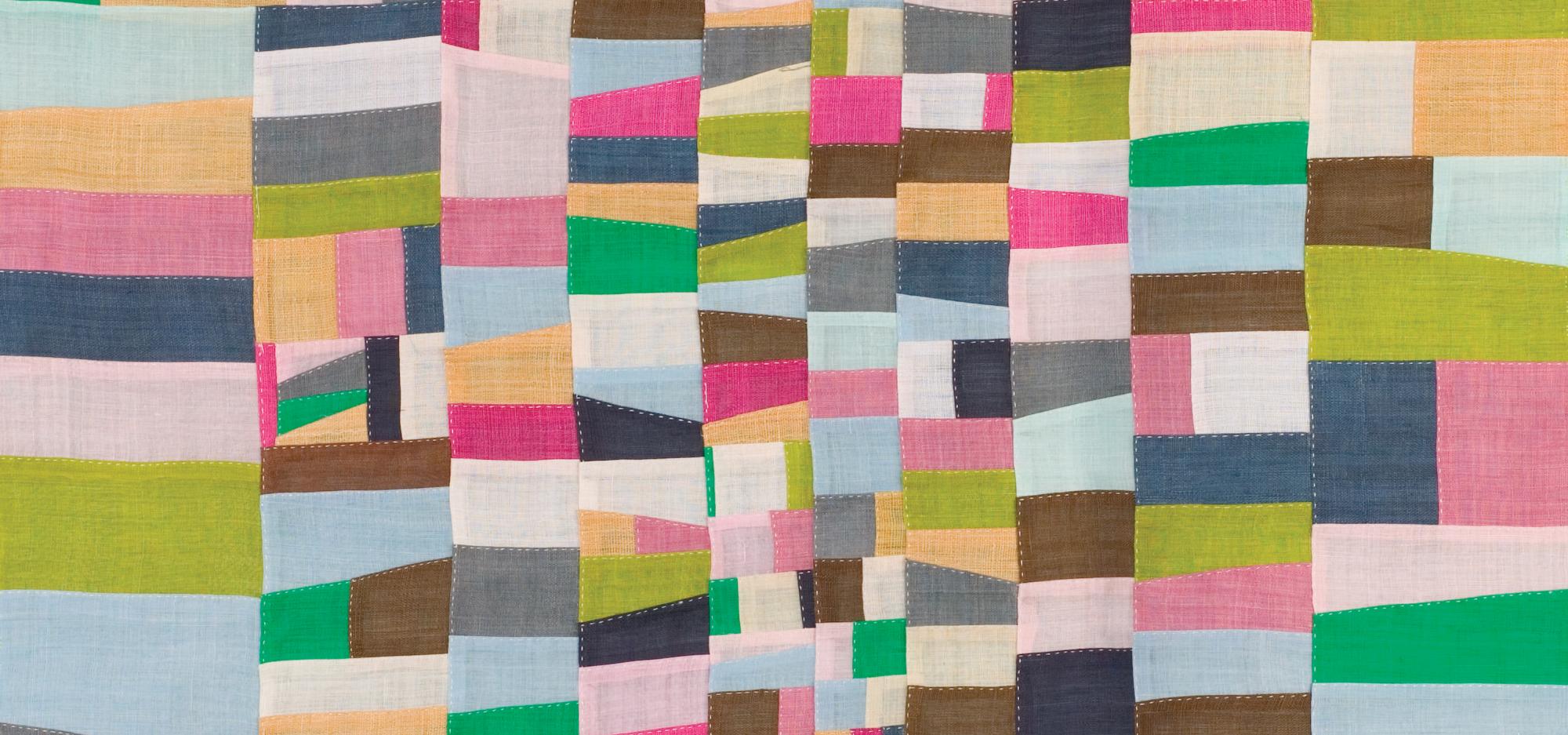
Pojagi
Aug 23-Nov 16, 2008
Patchwork & Quilts from Korea

There is a centuries-old tradition in many cultures, particularly in Asia, of wrapping objects with beautiful textiles. In Korean culture, these wrappings, called pojagi, were made in bursts of colorful patchwork or imaginative embroidery, in fine and coarse materials, and from small to large scale. It was in pre-modern Korea, particularly during the Chosŏn dynasty (1392-1910), that the pojagi became a Korean cultural icon. Both courtly and common society during the period were organized according the Confucian creed that elevated men and subjected women to social isolation. With few options before her, a woman could direct her creative energies and her daily struggles toward the socially acceptable activities of sewing and embroidery. The profusion of pojagi is one result.
Patchwork pojagi, called chogak po, had many uses. They served to cover, wrap, store, and carry objects in the common person's activities of daily life. They were used as tablecloths, to deliver a marriage proposal, to carry possessions on a journey, and to adorn and protect sacred writings. Women used wrapping cloths filled with cotton batting and quilted to wrap fragile objects or to cover food to keep it hot. Wrapping a gift in a specially made pojagi communicated respect for the object and good will toward the recipient. Each patch and stitch added by the maker was like a prayer of good will that would enfold and carry the gift. Women adapted chogak po for clothing, sometimes combined with quilting, to "wrap" and dress their loved ones. Many surviving patchwork wrapping cloths from the Chosŏn period have never been used, attesting to their preservation as reminders of the affection and blessing of their maker.